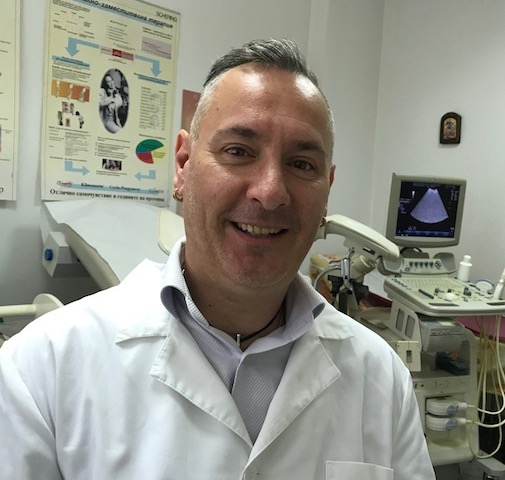Uterine fibroids are noncancerous growths of the uterus that often appear during childbearing years. Also called leiomyomas or myomas, uterine fibroids aren't associated with an increased risk of uterine cancer and almost never develop into cancer.
Fibroids range in size from seedlings, undetectable by the human eye, to bulky masses that can distort and enlarge the uterus. You can have a single fibroid or multiple ones. In extreme cases, multiple fibroids can expand the uterus so much that it reaches the rib cage and can add weight.
Fibroids are generally classified by their location.
Intramural fibroids grow within the muscular uterine wall.
Submucosal fibroids bulge into the uterine cavity.
Subserosal fibroids project to the outside of the uterus.
SYMPTOMS
Many women who have fibroids don't have any symptoms. In those that do, symptoms can be influenced by the location, size and number of fibroids.
In women who have symptoms, the most common signs and symptoms of uterine fibroids include:
- Heavy menstrual bleeding
- Menstrual periods lasting more than a week - Pelvic pressure or pain
- Frequent urination
- Difficulty emptying the bladder
- Constipation
- Backache or leg pains
- Rarely, a fibroid can cause acute pain when it outgrows its blood supply, and begins to die.
DIAGNOSIS
Many women have uterine fibroids. You might not even know you have them, since they don’t always cause any symptoms.
You might not know you have them until you see your doctor. Since your doctor will press on your uterus during a pelvic exam, he/she may feel abnormal changes in the shape of your uterus that could be due to fibroids. If so, he/she’ll probably want you go get some tests to find out.
Ultrasound - This is usually the first kind of imaging test your doctor will order. It uses sound waves to take a picture of your uterus, and can show your doctor if you do have fibroids, where they are, and how big they are. During the test, a doctor or technician will take pictures of your uterus by either moving a device over your abdomen, or inserting it into your vagina.
Magnetic Resonance Imaging (MRI)
If the ultrasound didn’t provide enough information, your doctor may want you to get an MRI. It can also help your doctor figure out what kinds of different tumors you may have so they can decide which treatment is best.
TREATMENT
If you have uterine fibroids, you may or may not need treatment. It depends on whether they cause you any problems.
There are several possibilities that you and your doctor can consider.
Fibroid embolization can shrink a fibroid. Your doctor will inject polyvinyl alcohol (PVA) into the arteries that feed the fibroid. The PVA blocks the blood supply to the fibroid, which makes it shrink. It’s not surgery, but you may need to spend several nights in the hospital because you may have nausea, vomiting, and pain in the first few days afterward.
Endometrial ablation is a procedure in which doctors destroy the lining of uterus to cut down on the bleeding linked to small fibroids.
Myomectomy is a surgery to remove fibroids. If you plan to become pregnant, your doctor may recommend this over other procedures. You’ll need to wait 4 to 6 months after surgery before you try to conceive. In most women, symptoms go away following a myomectomy. But in others, the fibroids come back. Whether it works will partly depend on how many fibroids you have and whether the surgeon could remove them all.
A myomectomy may be achieved by abdominal surgery, or your surgeon may use a hysteroscope or laparoscope to remove the fibroids without having to make a large cut on your abdomen.
Hysterectomy is surgery to remove the uterus. Many women don’t need treatment that’s this drastic.
